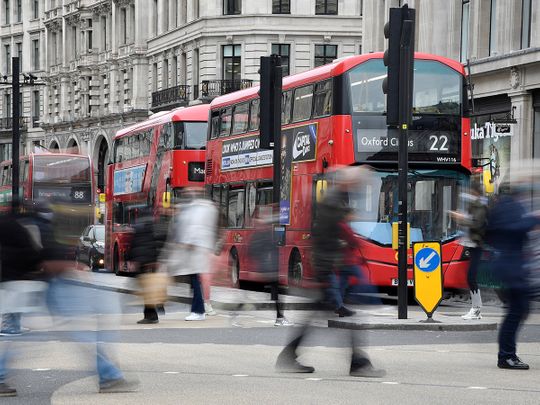
London: The UK economy shrank in the second quarter for the first time since the pandemic, driven by a decline in spending by households and on fighting the coronavirus.
Gross domestic product fell 0.1 per cent after an 0.8 per cent gain in the first quarter, the Office for National Statistics said Friday. A decline in Covid testing and vaccinations as well as slower retail sales were the biggest drivers. Manufacturing also fell.
The results mark the biggest bump so far in the recovery from the pandemic. The Bank of England expects that inflation raging at a 40-year high will tip the economy into recession later this year.
“Health was the biggest reason the economy contracted as both the test and trace and vaccine programs were wound down, while many retailers also had a tough quarter,” said Darren Morgan, the director of economic statistics at the ONS, said Friday. “These were partially offset by growth in hotels, bars, hairdressers and outdoor events.”
The figure for June alone showed a 0.6 per cent decline, mainly because of an extra holiday to mark the Queen’s jubilee. That was half the drop expected, but May’s figure was also revised down. While the outlook is for a rebound in the current quarter as the impact of the holiday unwinds, policy makers are concerned the rest of the year looks bleak.
“I know that times are tough and people will be concerned about rising prices and slowing growth, and that’s why I’m determined to work with the Bank of England to get inflation under control and grow the economy,” said Chancellor of the Exchequer Nadhim Zahawi.
The quarterly reading was a notch stronger than the 0.2 per cent contraction anticipated by both economists the BOE. It’s unlikely to shift the central bank away from further interest-rate hikes to control inflation.
Officials have already raised the key rate to 1.75 per cent, from 0.1 per cent in December, and markets are close to pricing in another half-point rise in September.












